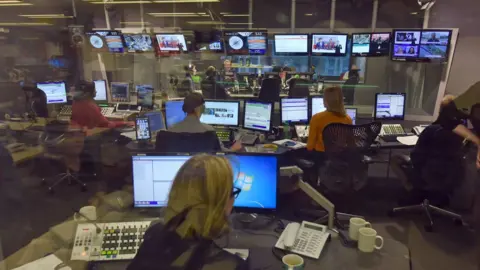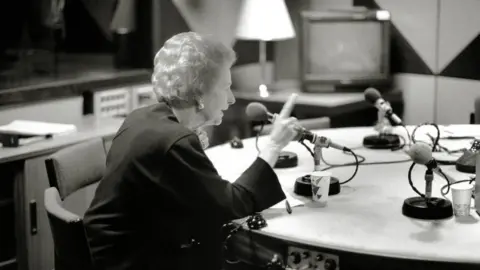Why the Today programme is much more than just politics
 JEFF OVERS
JEFF OVERSBBC Radio 4's Today programme is celebrating 60 years of being on air. It's become known as the place to hear top politicians being taken to task and policy analysed to within an inch of its life. But the programme has, over the years, become much more than that, as presenter Justin Webb explains.
Today is about a lot more than politics.
It's always been a window on the whole world - a place for BBC reporters to bring their news to people in Britain who care about, and know about, their world.

I spent most of my career doing that - though I follow in the footsteps of many great reporters including, rather oddly, my own father Peter Woods.
He became famous as a newsreader in the 1970s but was, before that, a war reporter.
His delivery is not what you have come to expect on Today these days - He is too stilted, too un-conversational.
I think the same is probably true of my own reporting from decades ago.
Since then, we have become a little less gung-ho about our wars abroad and a little more used to the idea of Brits being in conflict.
We have also begun to question each other on-air and expect clearer answers.
In the below exchange with Peter Sissons, the day the euro was introduced, I wish in retrospect I had gone a bit further.
But it's still the case that the big events need to be given weight on Today, and still the case that those who report on those events are given an opportunity to get a look-in.
Let's face it, Westminster politics isn't everything.
Foreign reporting is expensive and often difficult.
But it's part of this programme and long may that remain the case.
